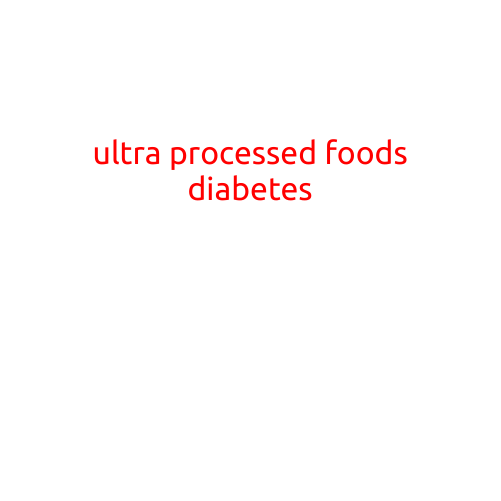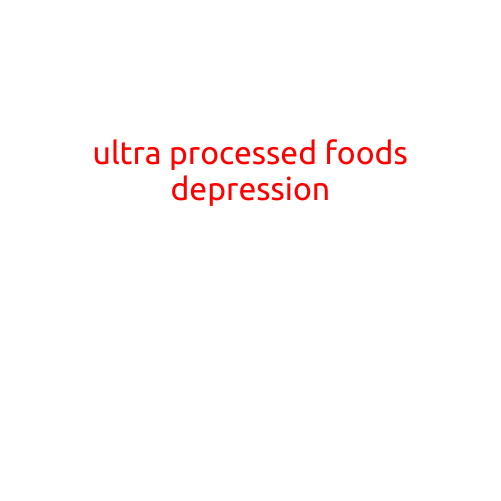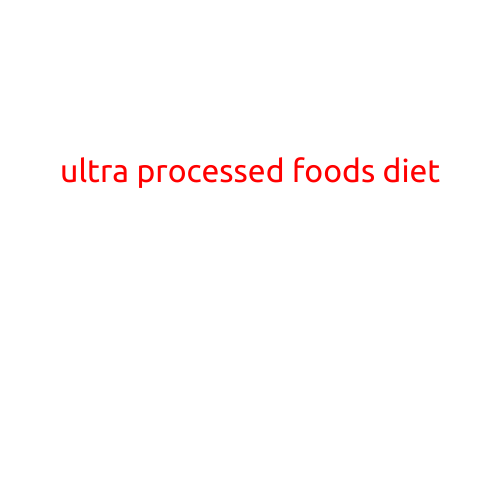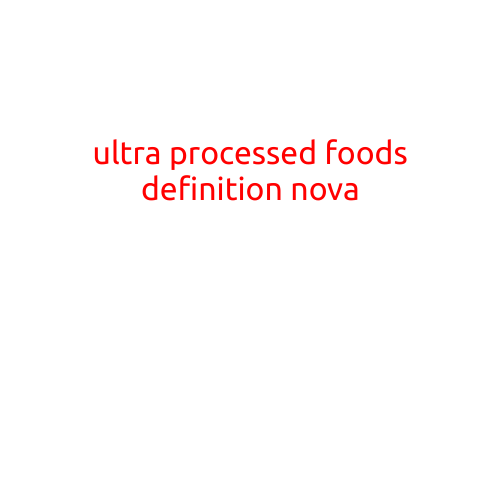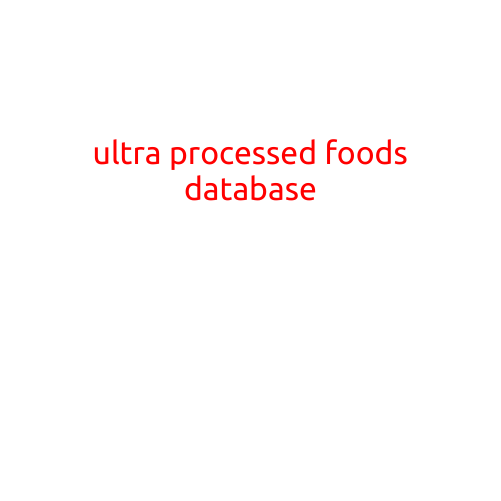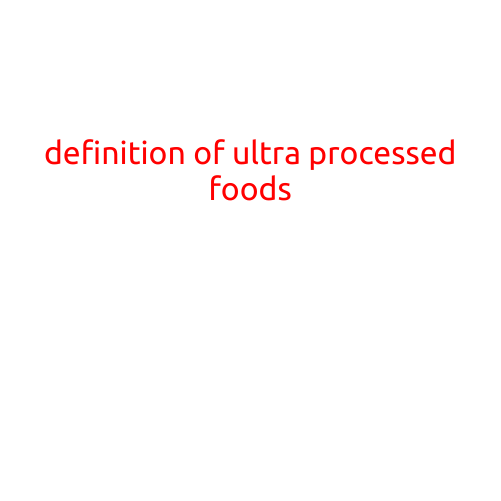
Definition of Ultra-Processed Foods: Understanding the Impact on Our Diets
In recent years, the term “ultra-processed foods” has gained widespread attention in the scientific community and the media. The concept refers to a category of food products that have undergone extensive processing and transformation, resulting in a final product that is far removed from its natural state. In this article, we will delve into the definition of ultra-processed foods, their features, and the potential health implications of consuming them.
Definition
Ultra-processed foods are defined as products that are made from a combination of several ingredients that are grouped together through various processing methods, such as extrusion, fermentation, and chemical modification. These foods are often highly palatable, convenient, and inexpensive, but they can also be detrimental to our health if consumed excessively.
The term “ultra-processing” was introduced by a team of researchers led by Dr. Carlos Monteiro, a epidemiologist at the University of São Paulo in Brazil. According to their definition, ultra-processed foods are characterized by the following criteria:
- They are composed of more than 50% of ingredients that are not commonly found in whole foods, such as sugars, oils, and fats.
- They contain less than 2% of whole grains or fiber.
- They are made using a combination of processing techniques, such as extrusion, frying, and sweetening.
Examples of Ultra-Processed Foods
Some common examples of ultra-processed foods include:
- Packaged snack foods, such as chips, crackers, and cookies.
- Frozen meals, such as pizzas, TV dinners, and macaroni and cheese.
- Baked goods, such as bread, pastries, and cakes.
- Sugary drinks, such as soda, sports drinks, and energy drinks.
- Ready-to-eat breakfast cereals, such as granola bars and oatmeal with added sugars.
- Processed meats, such as sausages, hot dogs, and bacon.
- Instant noodles and soups.
Health Implications of Consuming Ultra-Processed Foods
The consumption of ultra-processed foods has been linked to several negative health outcomes, including:
- Increased risk of obesity, type 2 diabetes, and heart disease.
- Malnutrition and reduced nutrient intake, due to the lack of essential vitamins, minerals, and fiber.
- Higher levels of inflammation and oxidative stress in the body.
- Negative impact on gut health and the gut microbiome.
- Increased risk of certain cancers, such as colon and breast cancer.
Conclusion
Ultra-processed foods are a growing concern in the global food system, as they are often promoted and marketed as convenient and affordable alternatives to whole foods. However, the scientific evidence suggests that these foods can have detrimental effects on our health and well-being. By understanding the definition and features of ultra-processed foods, we can make informed choices about the products we choose to consume and promote a healthier, more balanced diet.
